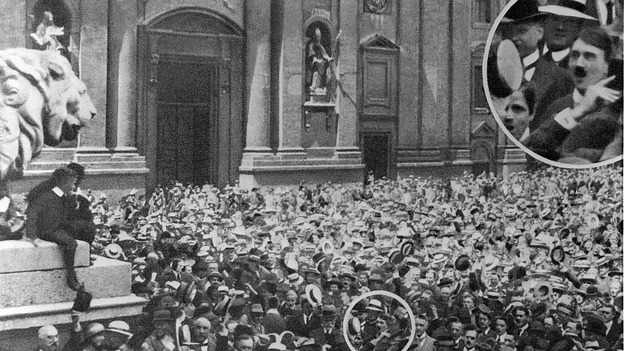The spectre of Hitler
Of course, he is the most studied persona not just in modern history, but perhaps all history. The phenomena of Hitler - his impact - has led to the creation of specialist areas of research within the history profession, as well as new disciplines such as social psychology. And yet, he is still very fresh - new biographies and histories of Hitler years come up all the time - throwing up new perspectives all the time.
Part of reason for this is the difficulty of studying Hitler. His odious, short-lived regime ended in flames. He, in person, disappeared from history as suddenly as he appeared, giving a free hand to conspiracy theorists. The world that emerged from the rubbles was divided, one where truth became a political weapon. The Nazi disruption became veiled by an iron curtain, which, we should not forget, had two sides. With him conveniently dead, Hitler became the ultimate bad guy, as all shades of enablers and collaborators looked to resume life as usual.
The story of Hitler is not just one of what happened, but also how it's told.
This is what fascinates me. We presume history - and historical biographies - to be chronicles of what happened. And, the character and events of Hitler are so proximate, almost within the lived experience - just-about history - reaffirm that expectation, and yet it's so obscure. It's a fascinating opportunity to see the many dimensions that make up history.
Besides, Hitler is becoming extremely topical. Democracies are fragile again. We did not have the radicalising effects of the Great War and the Great Depression, but we have committed commensurate sins of avarice. We haven't been to the trenches, but the hatred and fear of the trenches have been brought to us in bitesize chunks on social media. We have populists all around the world, pushing purist agenda and making myths of greatness. Though they may be political animals rather than zealots, they may be nurturing future zealots among their ranks. More potently, as Hitler's life may show us, all zealots may start as political animals.
Also, there is the German question, yet again. Hitler, and his history, overshadowed the whole of German history, becoming its representative expression. Thousands of years of history, many variations and divergent ideas, the glorious past of German nations have been pushed out of public mind, consigning the land and its people in a seemingly never-ending cycle of repentance. But that seems to be ending now: An unified Germany, emboldened by Europe, pushed by Russia, unshackled by a self-isolating Britain, abandoned by the United States, seems to be rising again. Soon, it will look to claim its place in global top table - and at that point, it has to make clear choices about what it stands for. It has to confront Hitler yet again and look to place him in his context, an incredibly fraught exercise.
And, finally, there is this issue of American retreat. As internal struggles undermine American power, its global empire is at risk. Another breaking of the empires may be within our event horizon. Hitler is the defining persona of that kind of global upheaval, a breaker of the global systems, a marker of false hopes and a messiah of hatred and violence, a life that should be instructive, at least for mounting a resistance.


Comments